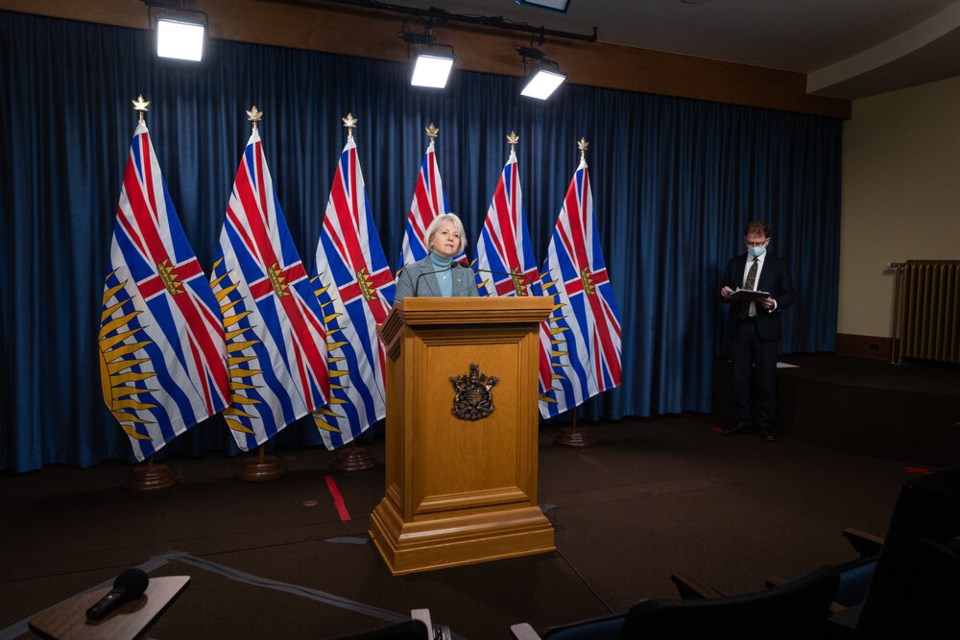On the two-year anniversary of B.C.’s first reported case of COVID-19, health officials traced a tortuous path of public health measures and how the province hopes to emerge into a post-pandemic world.
On Jan. 28, 2020, the province first announced that a man in his 40s had returned to B.C. from Wuhan, China and tested positive for COVID-19.
Since then, the province has seen five separate waves of COVID-19 over the past two years, with a total of 318,906 positive tests. The current Omicron-driven wave has caused the highest level of active cases and hospitalizations the province has seen.
“Each of these waves have had their unique challenges and our response has adapted to that. We have made extraordinary societal efforts and these efforts have saved countless lives,” said provincial health officer Dr. Bonnie Henry.
“We have been on an incredibly long and arduous journey, and no, I didn't think we'd be on this phase of the journey for this long, but it is the reality that we have to accept.”
With the current widespread transmission of the Omicron variant in the province, Dr. Henry once again noted that contact tracing is no longer an effective tool to control the virus, and B.C.'s testing has been overwhelmed.
“Because the virus has changed, we needed to reset our control strategies,” she said. “Contact tracing is not something that works with this degree of spread and it's not possible to test everyone, so we need to focus our testing on those people who need it most.”
But she noted that new case counts have been recently decreasing, and she hopes the province is seeing a peak in hospitalizations. With this, she hopes to be able to lift some COVID-19 restrictions by Family Day.
“People have a level of immunity because we've stepped up for booster doses... if we are continuing on this trajectory then yes, I do hope that we will be able to lift some of those restrictions and gradually get back to those needed connections,” Dr. Henry said.
“We're looking towards the middle of February, Family Day, when we can start to get back to doing some more things again.”
The press conference came hours after Henry spoke on national radio describing why British Columbia has moved so fast to treat the COVID-19 as if it were a bad strain of influenza.
“This virus has changed and will become part of what we will be living with for years to come,” she told CBC’s Matt Galloway on The Current. “COVID is a very severe influenza season right now.”
Data shared during Friday's press conference shows the success B.C. has had in reducing deaths and hospitalizations by COVID-19 compared to other provinces. Currently, COVID-19 hospitalizations and deaths per 100,000 people in B.C. is lower than Quebec, Manitoba, Saskatchewan, Alberta and Ontario.
But positive signs are emerging at the national level too. On Friday, Canada's chief public health officer Dr. Theresa Tam said she believes the Omicron wave has peaked across the country, though hospitalizations remain high.
Looking back over the past two years, Dr. Henry was asked to consider how she handled the pandemic. B.C.'s top doctor said she could have done better at communicating major changes in the province's pandemic strategies when the virus changed.
“If I could do anything over, it would be to be clearer in some of those communications, particularly at those stressful times when things are changing,” Dr. Henry said.
She added a paraphrasing of a Maya Angelou quote that has guided her over the past two years: “Do the best with what you know, and when you know better, do better.”




